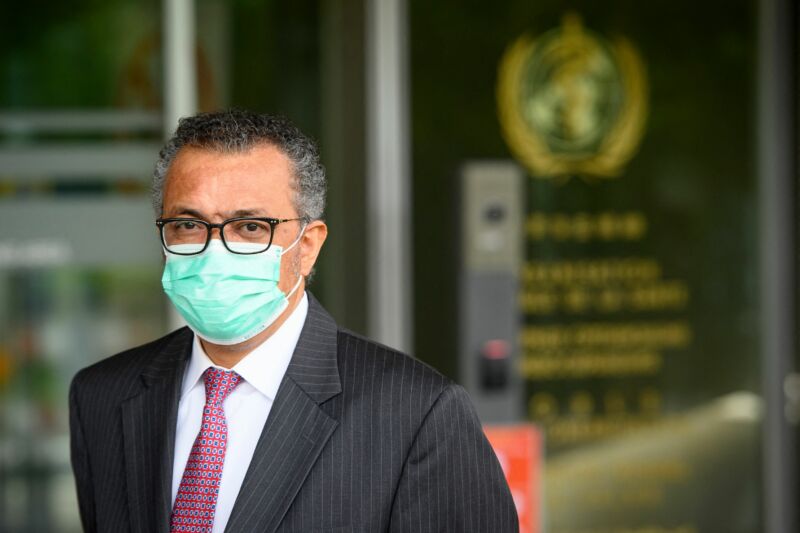
The World Health Organization on Wednesday called for a global moratorium on countries offering third doses—booster shots—of COVID-19 vaccines to their general populations until at least the end of September.
The call comes in light of the vast inequity in vaccine distribution worldwide, with high-income countries gobbling up the majority of supplies. In a press briefing Wednesday, WHO Director-General Dr. Tedros Adhanom Ghebreyesus highlighted that 4 billion COVID-19 doses have gone into arms, but more than 80 percent have gone to high- and middle-income countries, which make up less than half of the world’s population.
Put another way, high-income countries have now administered 100 doses per 100 people, while low-income countries have administered 1.5 doses per 100 people due to low supply, Dr. Tedros said.
In many countries, first doses have not even reached front-line health workers and people most at risk of dying from COVID-19, including the elderly and immunocompromised. In the press conference, Dr. Tedros read an email from a Ugandan midwife named Harriet Nayiga, who relayed that after a two-month wait, she was just now able to get her first dose of a COVID-19 vaccine.
In the US, officials have discussed and are monitoring the potential need for boosters in the future. For now, however, they have said clearly that there is no need for boosters among the general population, and they are not recommended at this time. Vaccines have shown to be effective against the delta variant, still offering high protection from severe disease, hospitalization, and death. However, if the coronavirus is allowed to continue to spread among the unvaccinated around the world, more dangerous variants could emerge.
Big picture
In Europe, a small number of countries are preparing a rollout of boosters, and many other countries are considering the possibility. Officials in the United Kingdom have said they’re preparing booster shots for September but are awaiting expert guidance to finalize the plan. Israel and Hungary have already begun offering boosters. France is planning boosters in September for the elderly and most medically vulnerable, who were first to receive doses when vaccines became available. And Germany announced a similar plan to offer boosters in September to the elderly, immunocompromised, and those who received an AstraZeneca or Johnson & Johnson vaccine.
The question of booster availability for the immunocompromised posed a challenge for the WHO’s call for a moratorium. Some with compromised immune systems have little protection from the standard two doses, and many experts are evaluating the use of a third dose to try to increase protection. Asked about this problem in the press conference, WHO officials stressed that the priority here is to right vaccine access, not necessarily keep third doses from the immunocompromised, such as those receiving solid organ transplants. If a third dose is necessary to protect some immunocompromised people, the moratorium wouldn’t apply.
“I don’t think we should mix up the big picture here,” WHO Senior Advisor Bruce Aylward said. “What we’re trying to do is get the global population vaccinated…The big picture here is, as a policy, not to be moving forward with boosters until we get the whole world at a point where the older populations, people with comorbidities, people who are working at the front lines are all protected to the degree possible with vaccines.”
The WHO has set a goal to get at least 10 percent of every country worldwide vaccinated by the end of September. So far, the US has donated 110 million doses of COVID-19 vaccine to 65 countries. However, the WHO has estimated it will take roughly 11 billion doses to get 70 percent of the world’s population vaccinated.
https://arstechnica.com/?p=1785041

